Multi50 and Class40 still battling in The Transat
Published on May 18th, 2016
(May 18, 2016; Day 17) – The Multi50 fight to The Transat bakerly finish nears its conclusion today, as skippers Pierre Antoine aboard Olmix and Erik Nigon aboard Vers un Monde Sans Sida, battle it out over the final 100nm for the final podium position in the class.
Since reporting his failed daggerboard yesterday, Antoine was propelled forward on a direct route to New York overnight. The French skipper now has a 65nm lead on Nigon, and an anticipated arrival time in Manhattan of 06:00 BST tomorrow. Nigon is expected to conclude his epic Atlantic adventure early afternoon.
“It’s nice to see the number of miles to New York diminishing,” Antoine reported this morning. “Despite the damage to my daggerboard, I’ve made good progress.
“A small depression started building over night. I was able to sail straight through it and latch onto the other side of it to take a direct route towards the finish line. It put me back in the race. It was a small stroke of luck, because if the wind had been on the nose, I would not have been able to do it.
“The conditions were still pretty complicated but it played out well for me. Erik is only 60nm behind, so I now really need to manage my lead,” he explained.
Among the seven skippers that remain in the Class40 fleet, Thibaut Vauchel-Camus aboard Solitaire en Peloton – Arsep holds onto his lead, positioning his boat well on the approach to the home straight. Despite there being only 300nm between Vaucel-Camus and the finish line, there is no room for error as the skipper constantly looks over his shoulder at the chasing Louis Duc aboard Carac, who favoured a more southerly route.
“As I get closer to New York, I can smell burgers, a good shower and comfort,” reported Vauchel Camus. “But I still have 300nm to sail, which is the equivalent to crossing the Bay of Biscay – a lot can still happen.
“For now I must stay in the rhythm of the race and not relax because I’m getting close to the line. Louis Duc is catching up. I’m glad to see him in second, it also puts the pressure on me to keep up the pace until I finish the final mile of this race.”
The British skipper Phil Sharp has dropped into third, as his Class40 Imerys limps towards the finish line under a seriously damaged mainsail. Reporting this morning, Sharp described his sail as a “useless flag.”
“In these gusty conditions the mainsail is redundant,” he said. “I’ve gone up the mast to try and hold it together. Sailing with no main will be a painfully slow finish.”
The first Class40 is expected to arrive in New York on Thursday. The current ETA for the damaged Imerys is Saturday at 10:00 BST.
Event website – Tracker – Facebook
About The Transat
Twenty-five boats set sail May 2 2016 on one of the great races in solo sailing, the 3,050-nautical mile passage across the north Atlantic from Plymouth to New York. Alongside 24 competing skippers is a one-off entry by the French racing legend Loick Peyron who is sailing Eric Tabarly’s 44ft wooden ketch Pen Duick II in the same trim as she was when Tabarly raced her to victory in The Transat (then called the OSTAR) in 1964.
The OSTAR (Observer Singlehanded Trans-Atlantic Race) was created in 1960 by a handful of pioneering sailors. The race was organised every four years by the Royal Western Yacht Club (RWYC) from 1960 through to the 2000 event, albeit with a lot of involvement from the French event organiser Pen Duick in the 90s, in order to cater for the demands of the professional campaigns that dominated the event.
After the 2000 edition, OC Sport stepped in to develop the event and acquired the rights to the professional part. OC Sport organised The Transat in 2004 and 2008, the 2012 edition was deferred at the request of IMOCA (the largest competing class).
The RWYC continues to organise a solo transatlantic race for Corinthian and non-professional sailors that is still known as the (O)STAR,. This race usually falls a year after the professional big boat race i.e. 2005, 2009, 2013, 2017. Both the amateur Yacht Club event and The Transat have the right to link to the history of the original race created in 1960, and to the rich history it has produced.
The first race was competed by just a handful of pioneering sailors including Francis Chichester and Blondie Hasler who coined the phrase: “One man, one boat, the ocean.” There has been tragedy, dramatic rescues and exceptional drama since the race began in 1960. Over time The Transat, as it is known today, has evolved and now serves the professional end of offshore sailing. But there are few modern day races that can reflect on such a long and outstanding history.
Monohull IMOCA 60 record: 12 days, 11 hours and 45 minutes set by Loick Peyron (FRA) on board Gitana in 2008. Multihull 60ft record: 8 days, 8 hours, 29 minutes set by Michel Desjoyeaux (FRA) on board Géant in 2004.
Source: The Transat

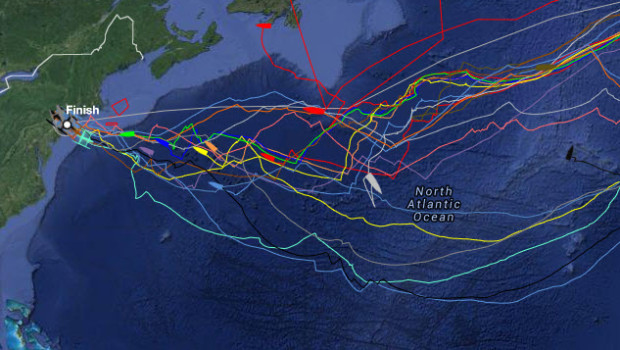

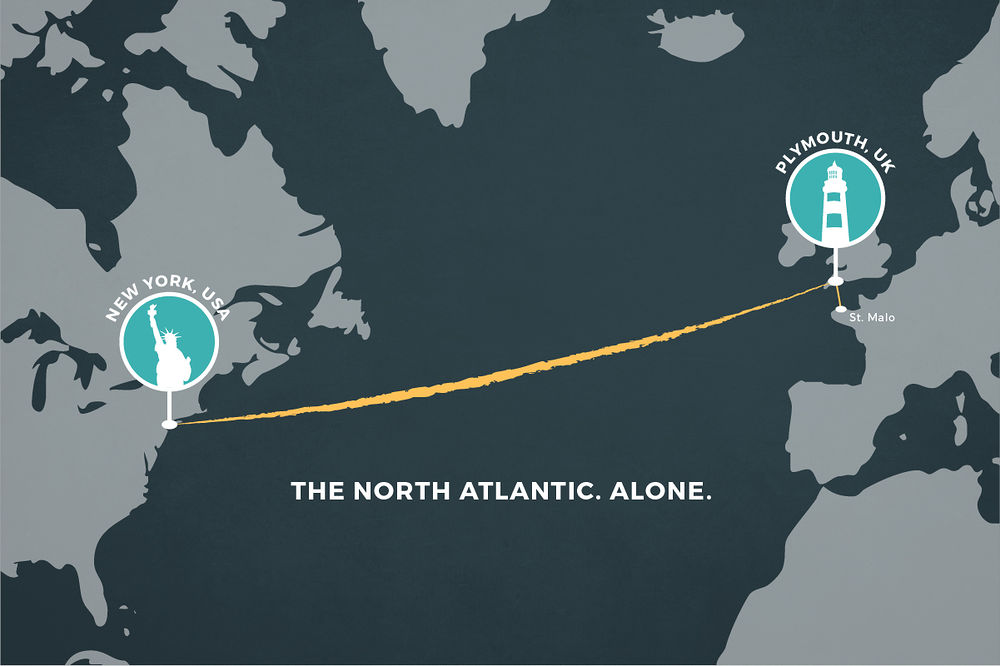

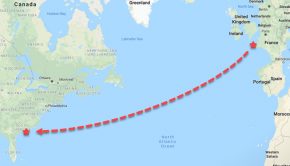
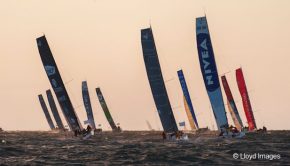
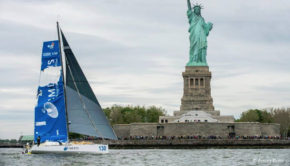
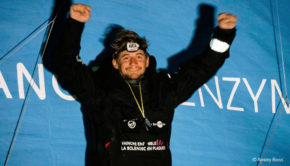
 We’ll keep your information safe.
We’ll keep your information safe.